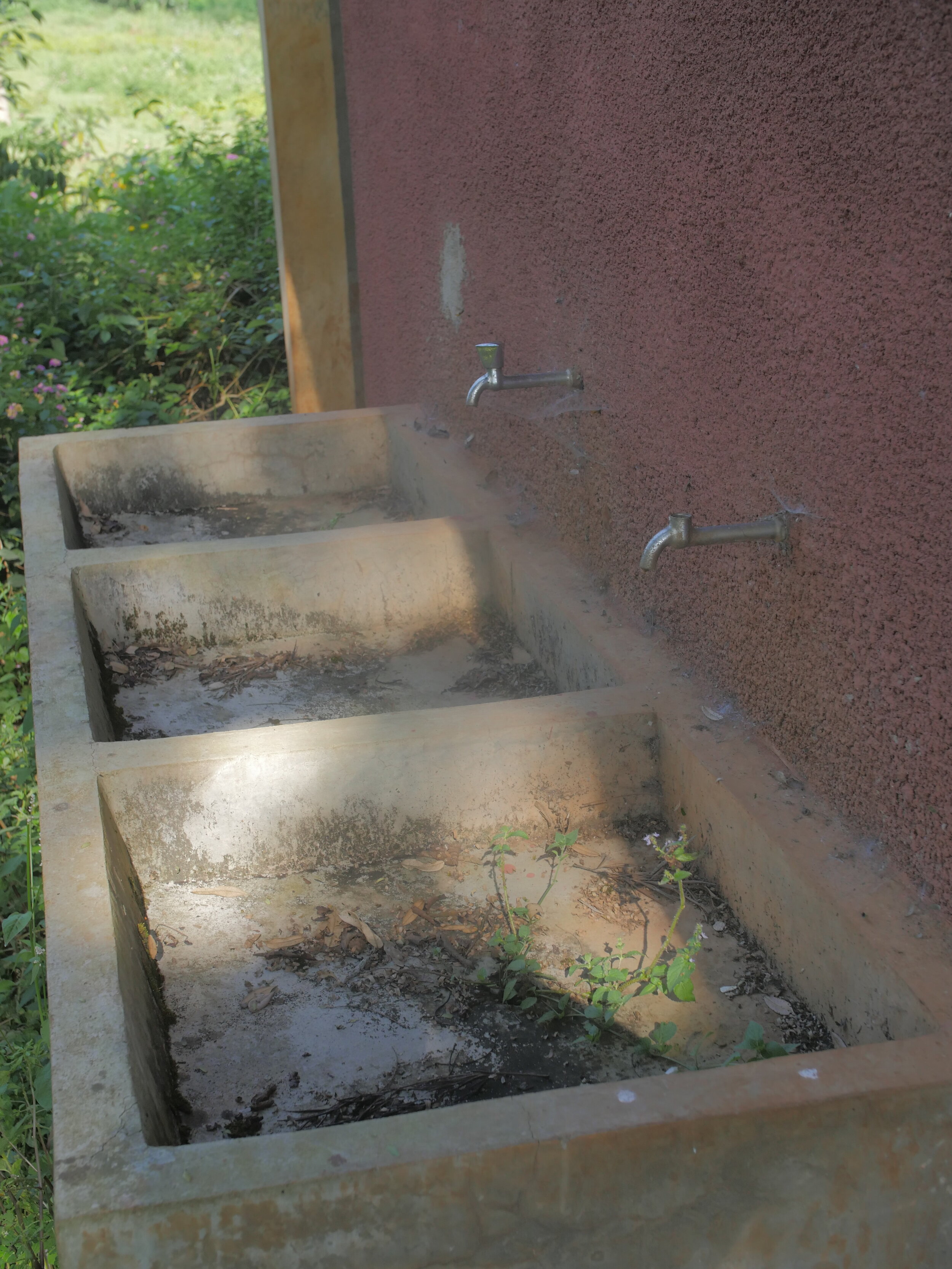Pilot Project Yayu.
A visit to our first Green Academy at the Prepatory School of Yayu, a rural village in the Southwest of Ethiopia, gave us the chance to converse with the students, teachers and the principal. We held workshops and focus groups in which the students opened up to us about their concerns and aspirations for their school and their town. They brought us to the watering hole from where they supply the water for their school and they showed us the no-longer functioning plumbing that was implemented without regards for longterm planning.
The water source down the hill [fig. 1 & 2, from left to right] where the students supply their water from[ fig. 3]. The no-longer functioning plumbing on the school grounds [ fig.4].
A Green Academy will be implemented first in the Yayu Preparatory school with the generous help of the Ministry of Innovation and Technology Ethiopia.
UNESCO Green Academies engage youth and their communities into transforming existing buildings, for example schools, into climate-resilient structures, equipped with simple, affordable and replicable changes. In this way, active youth participation will achieve a sustainable lifestyle in their schools which feeds back to their communities.
Starting with the installation of rainwater harvesting capabilities to give 1000 students access to water on campus. Furthermore, with schools being a focal point of any community, the new Green Academy serves as a learning platform for the community members to empower themselves to become more sustainable global citizens.
Interview with the School Director of Yayu Preparatory School
-
My current role is the school director. I have served the school as a school director for nine years and before that, I was a teacher here. Overall, I have been working at the school for over 13 years.
-
I was born in Yayu and lived in Yayu almost for 35 years. The conflict ongoing in Ethiopia has not affected my school and me because the conflict is far from our residence. The conflict is happening in Northern Ethiopia, around 1,377 km away from our region.
-
The total number of students enrolled in the school in the grades 9-12 is 1232 students (male = 648, female = 684). Their ages range from 15-22 years old. They are from a different ethnic groups which include Oromo, Amhara, Gurage, Kambata, Hadiya, Tigre, Site, Kaffa and the like.
-
A minority of the students come from the families of government employees and merchants who live in the town. Not surprisingly, of our students around 300 hundred students are supported by different groups like the school itself, city dwellers, and social associations, and by government employees. They support them by supplying them with educational materials like exercise books, pens, bags and the like.
-
The subjects taught in the school include Afan Oromo, Amharic, English, Mathematics, Physics, Chemistry, Biology, Geography, History, Civics and Ethical Education, Information Technology, Physical Education, Economics, Business Education, Technical Drawing and other technical and vocational training.
“The majority of the students come from villages, and their families depend on farming activities. ”
-
No, we do not have the means.
-
There is no service to dispose of waste materials, but we locally prepare the hole to dispose of the waste materials.
-
The water supply in the school is sourced from the town’s water pipe, but the school does not have enough water supply. Regarding the energy supply, it is sourced from hydroelectric power, but it is not sufficient for the school since the power is always off.
-
Yes, it is.
-
1. The school has no fence. This is a crucial problem.
2. The lack of sufficient classrooms. One classroom serves around 70-80 students.
3. The lack of sufficient combined desks, so one combined desk serves four students.
4. The lack of laptops and computers.
5. Carcity of reference books in the library.
“The school only got water service one day per month during the summer season and during winter season there is no water supply at all. ”
Documentary.
Green Academy in Ethiopia.






